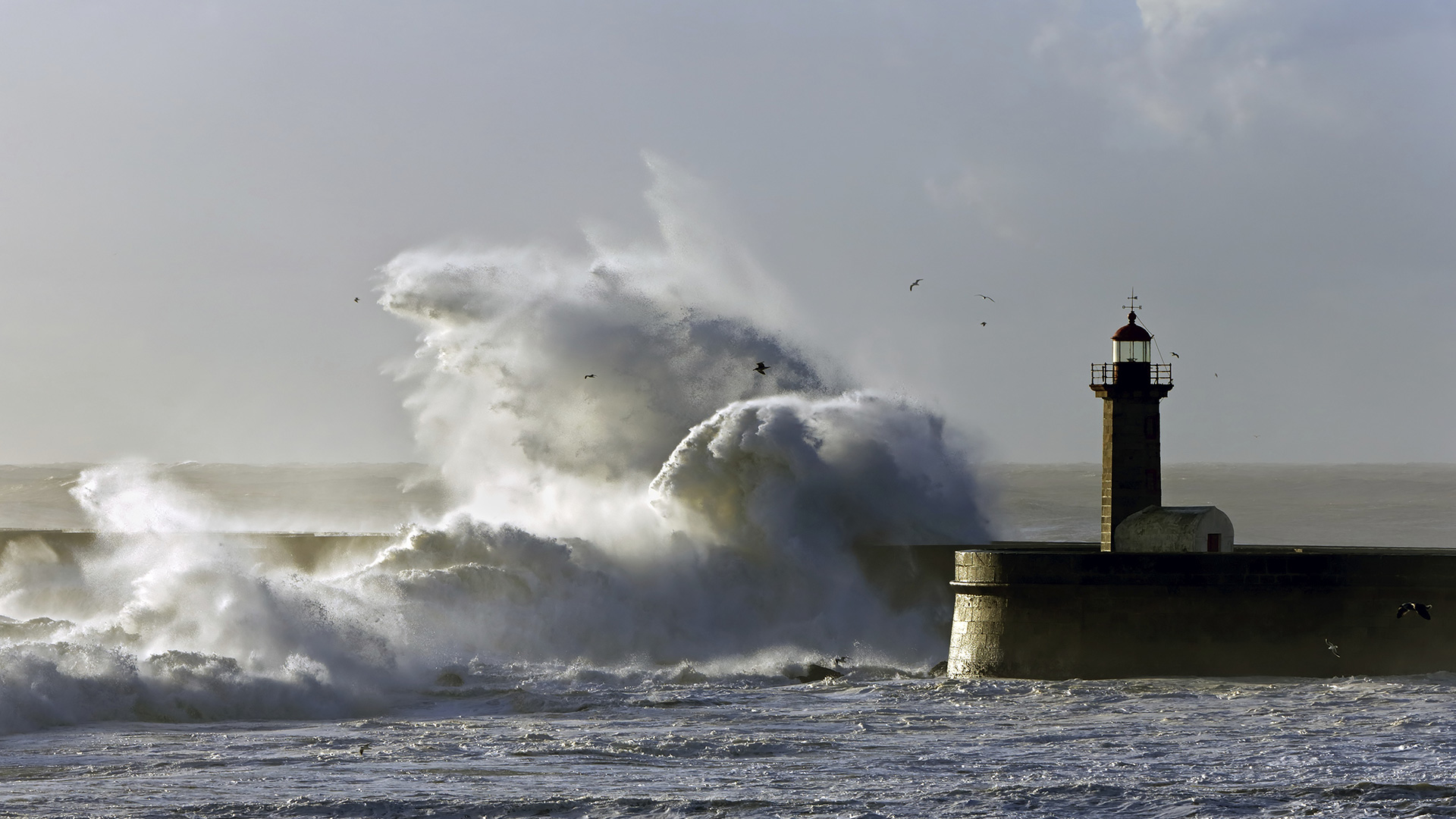“Weather Kitchen” and Climate-Machine
Hardly any topic is talked about as much as the weather. Would you like some sunshine? Of course – but not too hot, please. How about rain? Oh no – but then again it's good for the flowers. What many people do not know is that Germany's weather tomorrow is often determined by today's conditions over the North Atlantic.

The oceans, Earth's weather kitchen. Whether we have rain or sunshine, wind or snow in Germany usually depends on two relatively stable pressure areas over the Atlantic, the Azores high and the Icelandic low. When the Azores high determines the weather, we have mild temperatures. If the Icelandic low prevails, temperatures are much cooler.
At the same time, the Atlantic also ensures that Central Europe has relatively mild temperatures in the long term because the Gulf Stream continuously carries warm equatorial waters northward. Water and air masses thus stay warm, keeping the North Sea and the mouth of the Elbe River ice‑free throughout the year. Whereas the mean temperature for February in the German port of Bremerhaven is plus 1.7 degrees Celsius, temperatures in Goose Bay in the Canadian province of Labrador average minus 15.5 degrees – despite the fact that Goose Bay lies further south than Bremerhaven.
Oceans act like an enormous radiator
This is not the only example of how the seas determine our global climate. The oceans store and transport warmth and act like an enormous radiator. They are the most significant stabilizing factor in the global climate system.
The oceans and the atmosphere are mutually dependent. Their interactions have a direct impact on marine habitats and ecosystems on land, thus affecting the Earth system as a whole.
When the temperature of the ocean rises, the air warms up too and glaciers and polar ice caps start to melt. This leads to rising sea levels which affect the habitats and livelihoods of millions of people. Three and a half billion people live in the low-lying regions of Europe's Wadden Sea alone.
Reconsidering our daily car rides
What can individuals do to halt these developments? Experts suggest that we at least consider an alternative to our daily car rides to the workplace. This way, we could all do our bit to reduce pollutant emissions. The oceans currently absorb about 30 percent of the carbon dioxide produced among other things by our cars' combustion engines. The resulting acidification has serious impacts on pH-sensitive ecosystems such as coral reefs. Researchers are expecting that the oceans will become less and less able to absorb carbon dioxide. This will accelerate climate change and increase the greenhouse effect.


